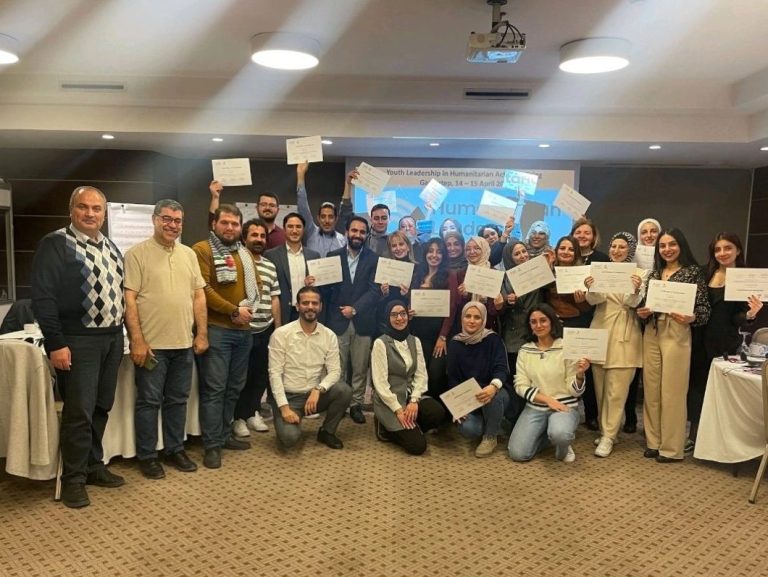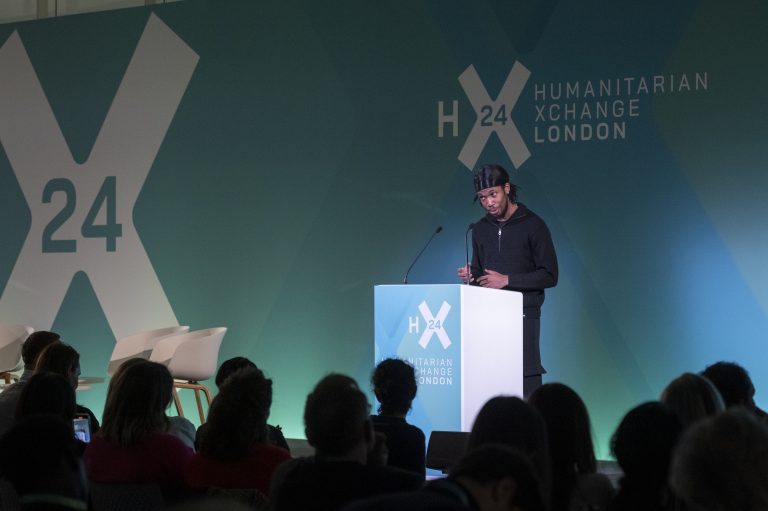While 2023 was coming to its end, our team in Eastern Europe didn’t slow down at all. As the Sphere Standards focal point in Poland, we continued delivering Sphere trainings. HLA’s certified trainers and learning solutions specialist delivered workshops on various topics and explored different leadership concepts together with humanitarians from all over Europe.
Spreading humanitarian standards
Our team in the Eastern Europe Regional Centre organised a series of Sphere Standards trainings in various locations in Poland. These training sessions were delivered in Polish by the local facilitators. The HLA earlier trained these facilitators in frames of our Training of Trainers (ToT) programme.
Our local facilitators in Poland – Kalina Kabat and Lena Rogowska-Lewandowska visited Białystok, Lublin, and Warsaw and delivered three-day Sphere trainings, providing humanitarian standards knowledge to 43 people in total.
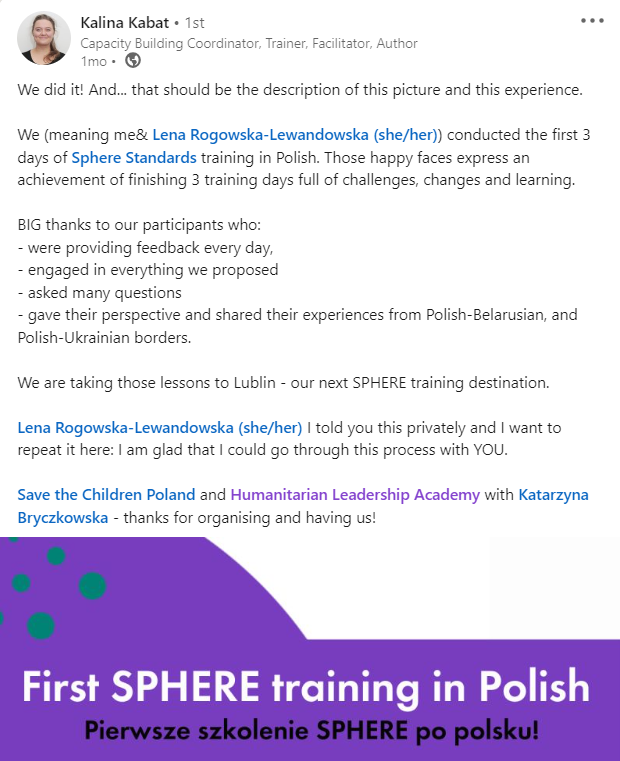
The training was well-organised, with quality content, and a good balance of theory and practice.
The trainers were well prepared, used various educational methods, and took into account the group’s feedback, adapting to the needs of the participants. Both the content and delivery were at the highest level.
The presented mechanisms for receiving and giving feedback, considering diversity, and mindful communication were especially useful.
In addition, Katarzyna Bryczhkowska, our Learning Solutions Specialist in Poland, together with Marta Lewandowska-Wroz, HR director of SCI Poland and Sphere trainer, conducted a successful Sphere workshop in Warsaw for local NGOs and post-graduate students in humanitarian studies from Warsaw University.
Kasia highlights:
– By delivering Sphere standards training to the new generation of humanitarians as well as our frontline workers, we are helping to improve the quality and accountability of humanitarian assistance in this response. Moreover, we have created a pool of local Sphere trainers. I am proud of their work and am glad that with the support of our new Sphere supervisor expert, we can continue and expand our work of spreading humanitarian standards. Thus, we plan to deliver a Sphere training in Ukraine in early 2024.
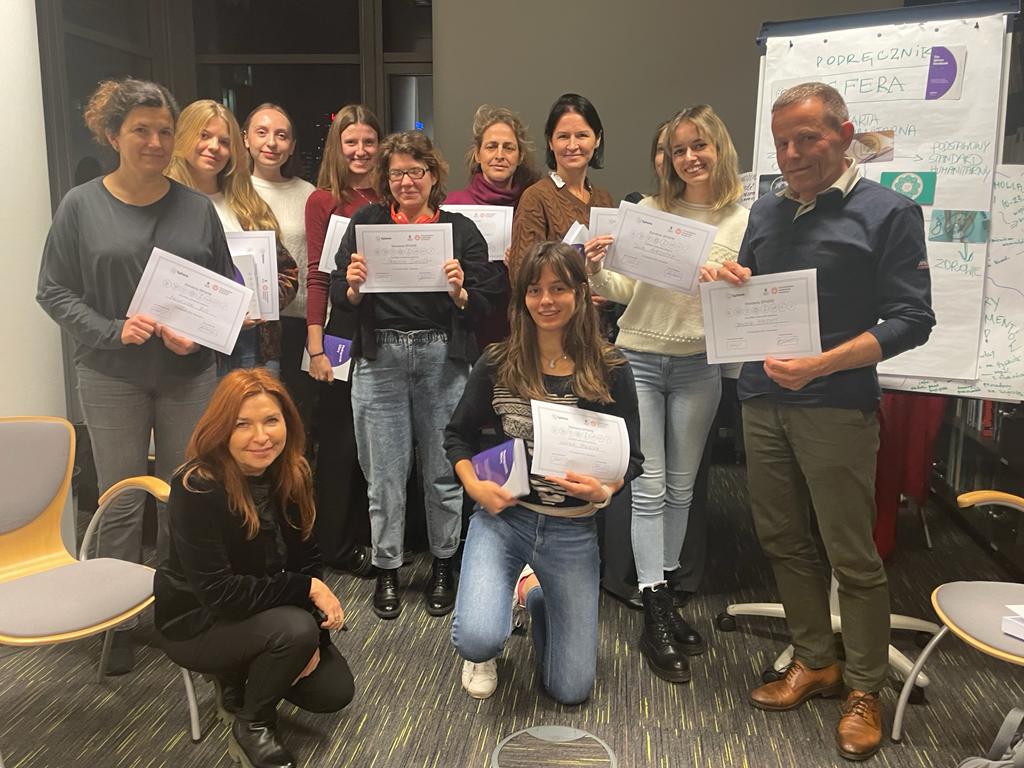
Exploring Eco-Leadership
Apart from Sphere standards training, together with the Eco-Leadership Institute and the support of the wider HLA team, the Eastern Europe Regional Centre organised The Leadership Game – a unique experiential learning event for 60 humanitarians. Thie event lasted for 2.5 days, allowing participants to work in various types of groups with different leadership systems, and exchange and reflect on their experience. The programme was thoughtfully designed around three pivotal tasks: Learning from Experience, Learning from Each Other, and Learning about Leadership.
Kamila Wujec, HLA Regional Lead in Eastern Europe, shares:
– The eco-leadership approach promotes cooperation and shared resources for the benefit of all, fostering a sense of interconnectedness and generosity. As multiple leaders adopt eco-mutualist practices, their collective efforts address complex challenges more effectively and the cumulative impact becomes more significant. Over time, these small changes can contribute to larger systemic changes. Organisations and communities that embrace eco-mutualist principles may influence policies, regulations, and societal norms, creating a more equitable and sustainable humanitarian system.
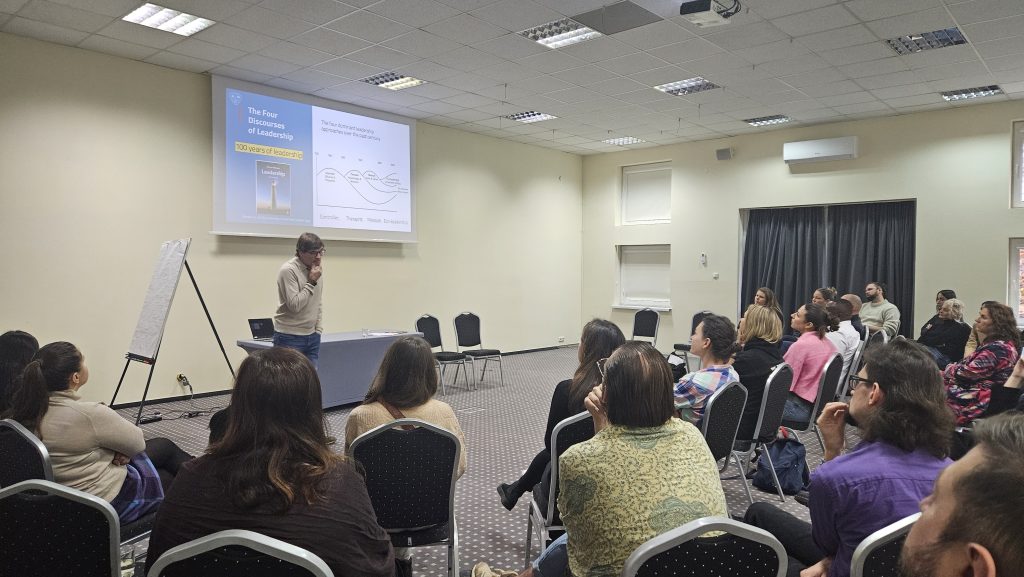
Promoting diversity
In December, two Antidiscrimination workshops took place in Wroclaw and Warsaw. Attended mostly by women from Ukraine, these two-day workshops provided the opportunity to explore topics related to discrimination and social exclusion, focusing on diversity and inclusion in humanitarian and development programs. The learning materials were backed up with specific examples and best practices. Our trainers discovered that many of the participants (the majority work in the humanitarian sector) regularly face discrimination at their workplaces. With the indicated high need and interest for this type of learning, we plan to continue delivering diversity workshops in the region.
The facilitators provided a safe space, took care to slow down the pace of the conversation when difficult topics came up, and approached the participants with great sensitivity.
The trainers arranged and conducted the training in a dynamic and engaging way. The time we had was used to the maximum to signal the problems of discrimination in language and everyday life, and to stimulate self-reflection.
The workshop facilitators are competent, knowledgeable, and experienced. They engaged participants through very thought-provoking questions and interesting practical tasks. The screening of a film stimulated discussion and reflection.
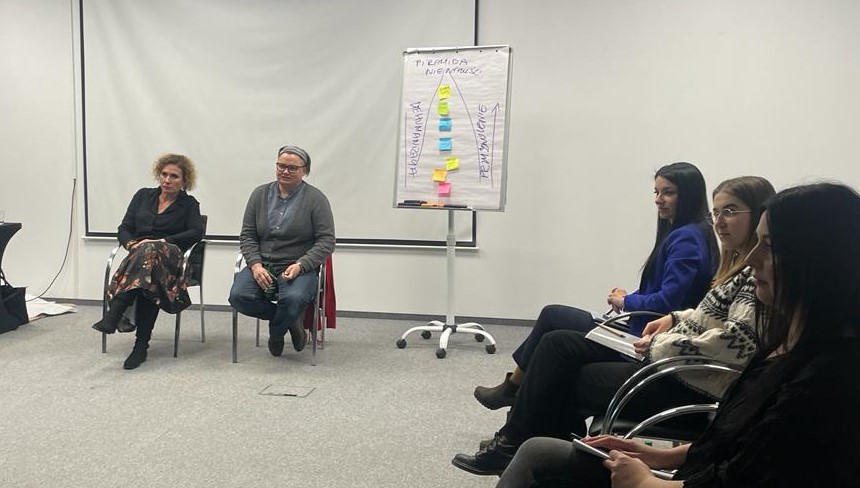
Supporting education professionals in Ukraine
Meanwhile in Ukraine, we continue the Education in Emergencies (EiE) Professional Development Programme. Participants who attended the first Reflect and Learn workshop in August have now completed the Module 1 online learning and have participated in online learning sessions facilitated by the local EiE consultant. In December, they joined the four-day in-person Training of Trainers. You can read more about the training and this programme here.
More online courses in Ukrainian
In December, we were also pleased to launch two more online courses in Ukrainian.
The 𝗘𝗱𝘂𝗰𝗮𝘁𝗶𝗼𝗻 𝗶𝗻 𝗘𝗺𝗲𝗿𝗴𝗲𝗻𝗰𝗶𝗲𝘀 (𝗘𝗶𝗘) 𝗠𝗼𝗱𝘂𝗹𝗲 𝟭 course explicitly links to the Inter-agency Network for Education in Emergencies (INEE) Competency Framework.
The four units, which can be taken individually, cover Foundations of EiE (1.1), Barriers to and Aims of EiE (1.2), Quality and Integrated EiE (1.3), and Humanitarian-Development Nexus and EiE (1.4).
The 𝗖𝗼𝗻𝗳𝗹𝗶𝗰𝘁 𝗦𝗲𝗻𝘀𝗶𝘁𝗶𝘃𝗲 𝗘𝗱𝘂𝗰𝗮𝘁𝗶𝗼𝗻 𝗶𝗻 𝗘𝗺𝗲𝗿𝗴𝗲𝗻𝗰𝗶𝗲𝘀 is a self-directed online course which looks at how education and the way it is implemented can either contribute to conflict or help reduce tensions and strengthen people’s capacities to disengage from it. This course has been created in partnership with War Child Holland and is part of the EiE Online series endorsed by Inter-agency Network for Education in Emergencies (INEE).
Both courses are available for free on Kaya.

